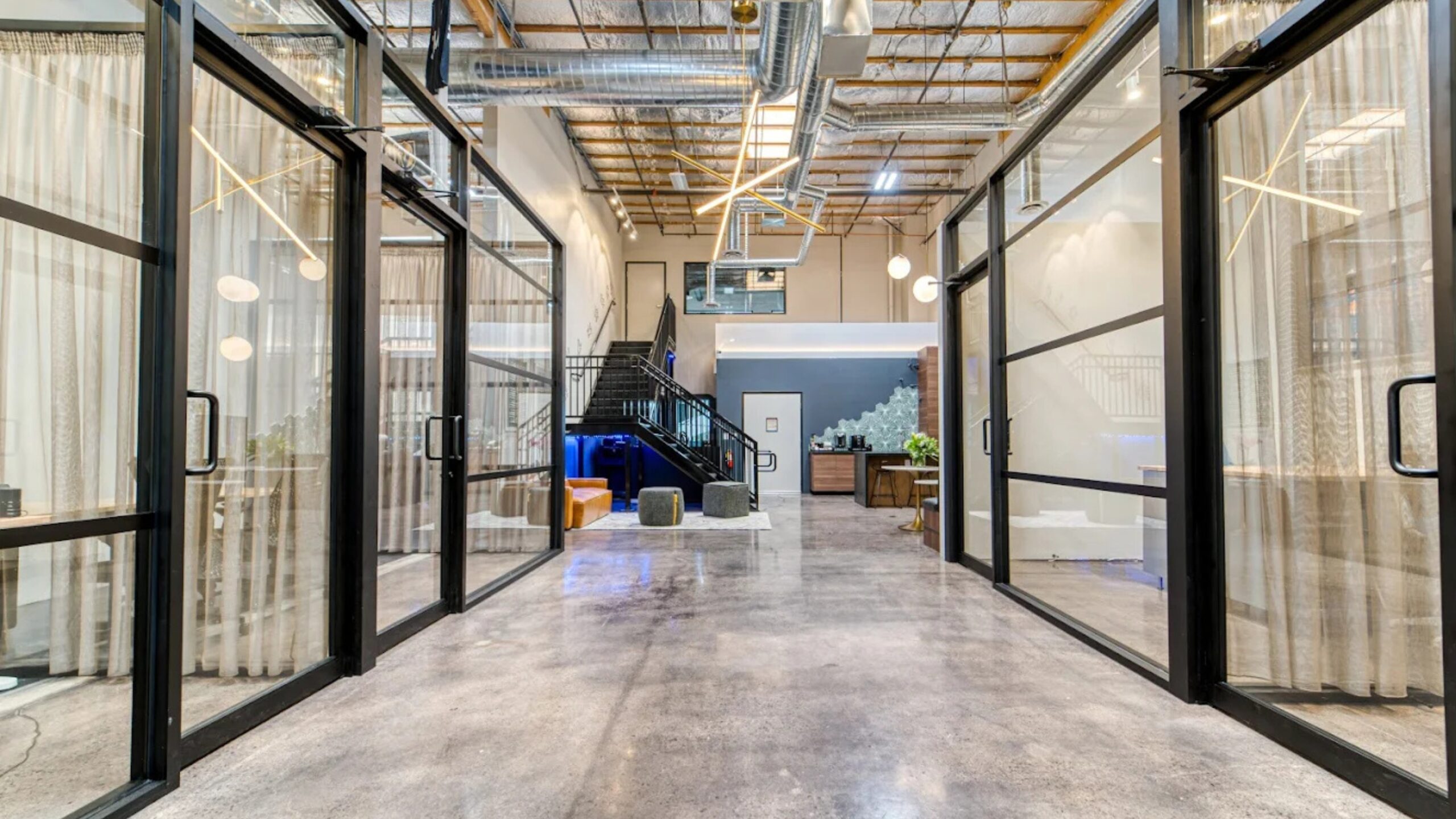Contents:
- The Basics
- Definition of SBA Loans
- Types of SBA Loans
- How to Apply for an SBA Loan?
- The SBA Loan Approval Process
- Tips for Getting Approved for an SBA Loan
- Pros and Cons of SBA Loans
- Conclusion

The Basics - Ultimate Guide to SBA Loans for Small Businesses
Welcome to the Ultimate Guide to SBA Loans for Small Businesses from Hustler’s Library. Small businesses are known to be the backbone of many economies around the world. They contribute significantly to economic growth, job creation and innovation. Despite these contributions, small businesses often face challenges in accessing capital needed for startup and expansion.
In recognition of this challenge, the United States Small Business Administration was created to help small businesses overcome these financial obstacles. One of the key ways that SBA helps small businesses is through SBA loans.
These loans are a crucial component of SBA’s mission to help small businesses grow and thrive. In this article, we will provide an overview of what SBA Loans are, why they are important for small business owners, and how they can be obtained.

Definition of SBA Loans
The United States Small Business Administration (SBA) was created in 1953 with the purpose of helping entrepreneurs start and grow their businesses. The organization offers a range of services to assist entrepreneurs with financing, training, counseling and other resources needed for business success. SBA Loans are only one of the many types of financial assistance provided by the agency.
These loans are designed specifically for small business owners who may not qualify for traditional bank loans due to lack of collateral or credit history. The government guarantees a portion of each loan made by approved lenders which reduces their risk in lending to new or expanding companies.
Types of SBA Loans
The Small Business Administration offers a variety of loan programs to suit the needs of different types of small businesses. The three most popular SBA loans are the 7(a) Loan Program, the Microloan Program and the CDC/504 Loan Program.
Each loan program has its own eligibility criteria, interest rates, fees, and repayment terms. Understanding the differences between these programs can help you choose the right one for your business.

7(a) Loan Program:
The 7(a) Loan program is the most common type of SBA loan program. It provides financial assistance for a wide range of business purposes such as working capital, inventory purchase or expansion of operations. The maximum amount that can be borrowed under this program is $5 million, and repayment terms can range from seven to 25 years depending on how funds will be used.
To qualify for a 7(a) Loan, businesses must meet specific requirements set by SBA such as: being a for-profit entity; operating in the United States; having a reasonable amount of equity; demonstrating an ability to repay; not having access to alternative financing from other sources.
Under this program, businesses can borrow up to $5 million with funds being used for various purposes including working capital, equipment purchase or real estate acquisition.
Interest rates on 7(a) loans vary based on creditworthiness but typically range between 6% and 8%. There are also various fees associated with these loans including guarantee fees which range from 2% to 3.75%, depending on loan size.
Microloan Program:
The Microloan program provides smaller amounts of financing (up to $50k) to start-ups and small businesses for working capital, inventory purchase or equipment acquisition. The repayment term for the Microloan is up to six years.
To qualify for a Microloan, businesses must meet specific requirements set by SBA such as: being a for-profit entity; operating in the United States; having a reasonable amount of equity; demonstrating an ability to repay.
Under this program, businesses can borrow up to $50k with funds being used for various purposes including working capital, equipment purchase or real estate acquisition.
Interest rates on Microloans vary based on creditworthiness but typically range between 8% and 14%. There are no fees associated with these loans except for late payment fees which are assessed if payments are not made on time.
CDC/504 Loan Program
The CDC/504 loan program provides long-term financing (up to $5.5 million) for the purchase of fixed assets like land, buildings, machinery or equipment. Repayment terms can range from ten to twenty-five years depending on how funds will be used.
To qualify for a CDC/504 loan, businesses must meet specific requirements set by SBA such as: being a for-profit entity; operating in the United States; having a reasonable amount of equity; demonstrating an ability to repay; using funds only for fixed assets like land or buildings.
Under this program, businesses can borrow up to $5.5 million with funds being used ONLY FOR the purchase of fixed assets like land, buildings, machinery or equipment.
Interest rates on CDC/504 loans are fixed at a rate based on the current market rate for U.S. Treasury securities. The fees associated with these loans include a CDC processing fee of 1% and an SBA guarantee fee which ranges from 0.5% to 3.5%.

How to Apply for an SBA Loan?
Applying for an SBA loan can be a challenging process, but with the right preparation and information, it can be simplified. The Small Business Administration requires specific documentation and proof of eligibility to increase your chances of getting approved. Before proceeding with the application process, ensure that you have read the eligibility criteria for each type of SBA loan available.
Prepare Your Business Plan
The first step in applying for an SBA loan is to create a comprehensive business plan that outlines every aspect of your business. This document should include your company’s financial statements, projections, and details about how you plan to run your business over time. The Small Business Administration uses this document to assess whether you will be able to repay the loan if granted.
Ensure that your business plan follows a specific structure and includes all necessary information relevant to your industry or field. Include market research and customer analysis data as well as descriptions of products or services offered by the company.
Gather Required Documents
The next step is gathering all required documents, which may vary depending on the type of loan you are applying for. Commonly required documents include:
- Personal and business tax returns
- Business financial statements (income statement, balance sheet)
- Articles of incorporation/organization
- Resume(s) of key personnel Consult with an SBA-approved lender or review requirements online before proceeding with the application process.
Find an SBA-Approved Lender
Once you have completed your business plan and gathered all necessary documentation, it’s time to find an SBA-approved lender who will guide you through the application process. You can find a list of approved lenders on the Small Business Administration website. Be sure to research potential lenders before committing, as different lenders may offer different rates or fees for their services.
Submit Your Application
After you have selected a lender, you can proceed with submitting your SBA loan application. The application process may take several weeks or months to complete, depending on the lender’s processing time and the complexity of your case.
Ensure that all information and documentation provided in the application are accurate and up-to-date to increase your chances of getting approved. Track the status of your application regularly and follow up with lenders as needed.

The SBA Loan Approval Process
Many entrepreneurs reading this ultimate guide to SBA loans for small businesses may get discouraged at this point, however, its best to trust in your hard work and perservere!
Application Review Process
The application review process for an SBA loan is quite thorough. The lender will want to make sure that the borrower is a good credit risk, has a solid business plan, and has adequate collateral to secure the loan.
To start, the lender will review the borrower’s credit score and financial history, as well as the business’s financial statements and tax returns. After this initial screening process is complete, the lender may request additional documentation or information from the borrower.
This could include detailed financial projections, legal documents like partnership agreements or operating agreements, and proof of collateral. Once all of this information has been submitted, the lender will conduct a more detailed analysis of the borrower’s ability to repay the loan.
Underwriting Process
The underwriting process for an SBA loan is similar to that of any other type of loan. The lender will analyze all of the information provided by the borrower in order to determine whether or not they are a good credit risk. This includes looking at factors like credit score, debt-to-income ratio, cash flow projections, and collateral.
If everything checks out during underwriting, then it is likely that the loan will be approved with standard terms and conditions. However, if there are any red flags during underwriting – such as insufficient cash flow or poor collateral – then it is possible that additional requirements may be imposed on the borrower before approval can be granted.
Closing Process
Once an SBA loan has been approved by both parties (the lender and borrower), it moves into closing phase where final documentation must be signed. During closing phase both parties sign a promissory note which outlines repayment terms such as interest rate and payment schedule. This process typically occurs at an attorney’s office or title company in front of a notary public who will verify all signatures and act as a neutral third party.
After the documents are signed, the borrower will receive the funds via direct deposit into their account. It is important to note that SBA loans can take several weeks or even months to fund after approval due to the extensive application and review process.

Tips for Getting Approved for an SBA Loan | Ultimate Guide to SBA Loans for Small Businesses
Nothing guarantees getting funding successfully, however, there are several steps small business owners can take to put themselves in winning positions. Here are some tips from the Hustler’s Library to increase the chances of getting approved.
Improve Your Credit Score
Your credit score is one of the most important factors that lenders consider when evaluating your eligibility for an SBA loan. The higher your credit score, the better your chances of getting approved and securing a lower interest rate.
Therefore, before applying for an SBA loan, it’s essential to review and improve your credit score. To improve your credit score, start by paying all bills on time and in full.
Reducing debt and maintaining a low credit utilization ratio can also boost your score. It’s also a good idea to review your personal and business credit reports to ensure they are accurate and dispute any errors you find.
Put Extra Time Into Your Business Plan
It is very apparent when a business owner has put forth a considerable amount of effort into planning and when they have not. If you can’t answer all the lender’s questions confidently, then why should they feel confident in lending you capital? A solid plan demonstrates that you have thought through the details of how you will use the funds, generate revenue, and pay back the loan.
A comprehensive business plan should include detailed financial projections, market analysis, marketing strategies, management structure, and details about how the loan will be utilized. Be sure to cover all bases when writing up this plan so that it accurately reflects your vision for success!
Provide Complete Documentation
One of the most common reasons why SBA loan applications are rejected is due to incomplete documentation. Lenders need complete documentation to evaluate eligibility under their lending criteria.
So be sure to provide all required documents such as tax returns, financial statements (balance sheet & income statement), personal financial statements of owners/guarantors (if applicable), business registration documents etc., along with any additional information required by individual lenders.

Pros and Cons of SBA Loans
Advantages of SBA Loans
SBA loans have several advantages over traditional bank loans. First, they offer longer repayment terms that can help reduce monthly payments and improve cash flow for small businesses. Second, they typically require lower down payments, allowing businesses to conserve their cash reserves for other expenses. Third, SBA loans offer lower interest rates than most other financing options available to small businesses. This means that borrowers can save thousands of dollars over the life of the loan.
Additionally, SBA lenders are often more willing to work with new or struggling businesses that may not qualify for traditional bank loans. Furthermore, borrowers who receive an SBA loan can benefit from ongoing support and resources from the agency itself.
This includes access to counseling services, educational resources and networking opportunities. These resources can help entrepreneurs navigate the challenges of running a small business and stay on track for success.
Disadvantages of SBA Loans
While there are many advantages to obtaining an SBA loan, there are also some potential disadvantages that borrowers should be aware of before applying. One drawback is that the application process for an SBA loan can be lengthy and complex.
Borrowers must provide extensive documentation to prove their eligibility and often must wait several weeks or even months for approval. This delay may not be feasible if a business needs funds quickly.Another disadvantage is that some lenders may require collateral in order to approve an SBA loan. This means that if a borrower defaults on their loan payments, they risk losing personal or business assets such as real estate or equipment used as collateral.
Borrowers who receive an SBA loan will need to adhere to strict reporting requirements and regulations set forth by the agency. Failure to comply with these rules could result in penalties or loss of funding in the future.
It’s important for potential borrowers to weigh the advantages and disadvantages of SBA loans before deciding if this type of financing is right for their business. Those who can navigate the application process successfully and use the funds wisely will likely find that an SBA loan can be a valuable tool for growing and sustaining their business over time.

Conclusion
SBA Loans offer small businesses an opportunity to access affordable financing that they wouldn’t have been able to access otherwise. The loans are designed to support entrepreneurs who may not meet the strict lending criteria of traditional banks.
With flexible eligibility requirements, low-interest rates and long repayment periods, these loans can provide a lifeline for businesses looking to grow or sustain their operations. However, it is important for business owners to do their due diligence before applying for an SBA loan.
They should carefully evaluate their financial needs and determine which loan program would be suitable for them. Business owners should also work on improving their credit scores, preparing a strong business plan and gathering all the necessary documents before submitting their application.
Overall, SBA Loans can be a valuable tool for small businesses looking to grow or sustain their operations. By following the tips and guidelines outlined in this article, entrepreneurs can increase their chances of getting approved for an SBA Loan and start reaping the benefits of affordable financing.







